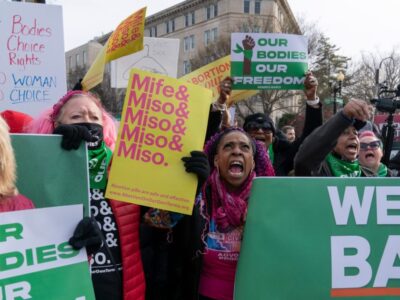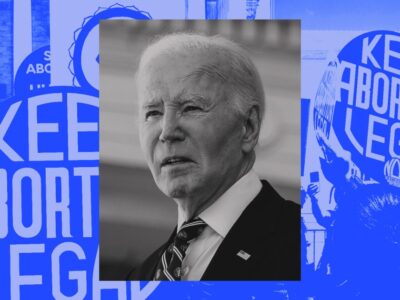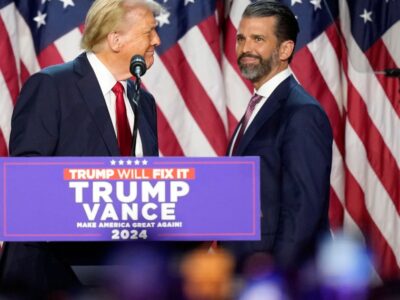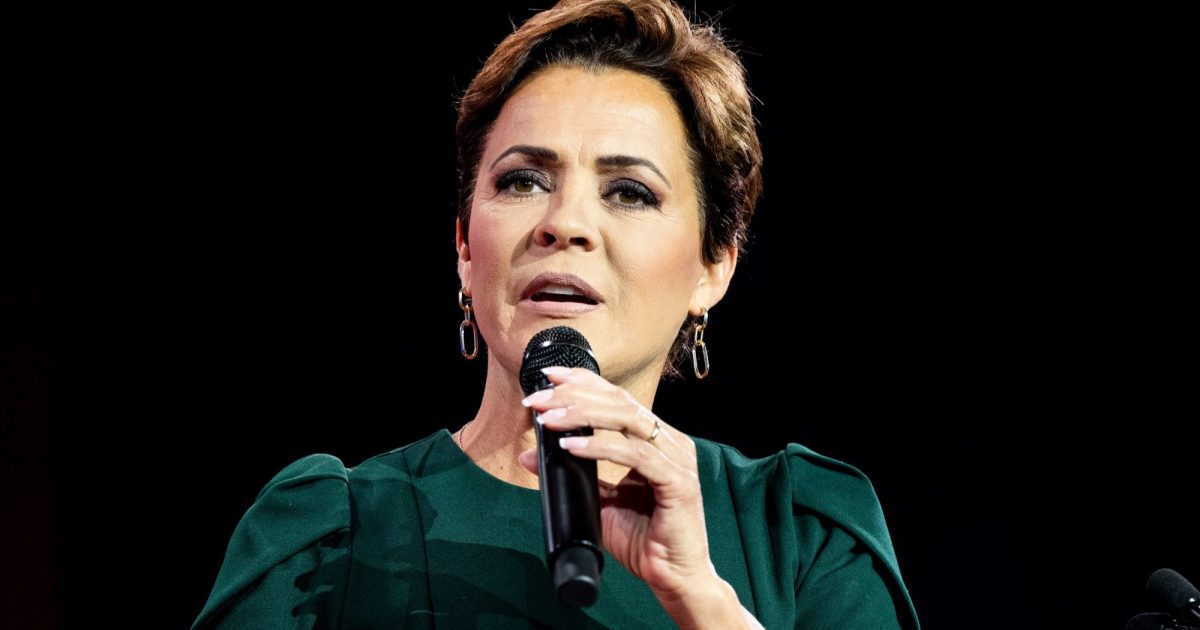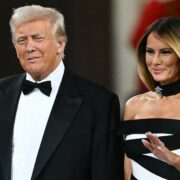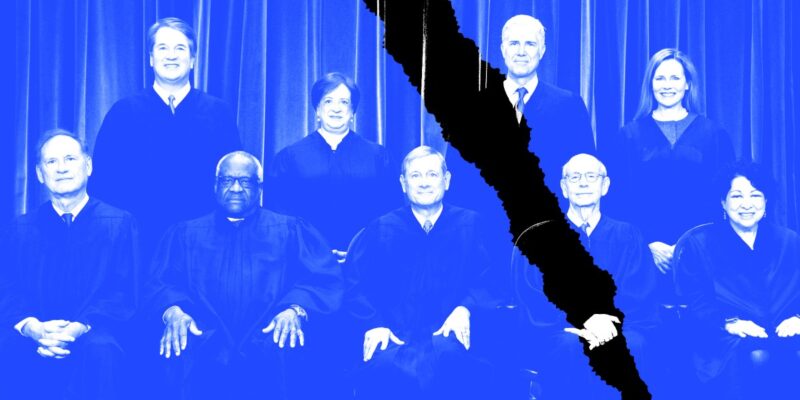
One year ago, shortly after a draft Supreme Court opinion overturning Roe v. Wade was published, Justice Clarence Thomas bemoaned that the leak had eroded public trust in the body. “I wonder how long we’re going to have these institutions at the rate we’re undermining them,” Thomas told attendees at a gathering hosted by three conservative think tanks.
Looking back, it was an ironic moment. Many events following the leak have undoubtedly eroded the court’s legitimacy, including the decision itself, which overturned 50 years of precedent and took away a fundamental right. (Indeed, polls showed approval of the court plummeting just after Dobbs v. Jackson Women’s Health was formally issued.) When Justice Elena Kagan warned such conservative decisions were undermining public confidence, Chief Justice John Roberts fired back, saying that “simply because people disagree with an opinion is not a basis for questioning the legitimacy of the court.”
But insisting that the court’s integrity is above reproach does not make it so. And in the year since the leak, there has been a series of troubling revelations about the court, including new information about Republican-appointed justices’ financial, personal, and professional links to wealthy individuals and powerful institutions that sustain the right-wing legal movement. If conservatives on the high court are worried about its long-term legitimacy, they might want to reconsider those entanglements. Here’s a review.
Ginni Thomas and January 6
When Thomas took to stage to complain about the Dobbs leak, he was already facing questions about his own ethical choices, but his conservative hosts were too polite to ask about them. Ahead of the leak, the public learned that Ginni Thomas, the justice’s wife, was involved in efforts to overturn the 2020 election, including texting with Donald Trump’s chief of staff, Mark Meadows, pressuring the president to stay in office. Despite her personal involvement, Justice Thomas took part in a case deciding whether the Congressional committee investigating January 6 could obtain Trump White House records, and was the lone justice to say the records should be withheld; his role was a clear conflict of interest as her communications could have been among the documents.
The Dobbs leak investigation
The Supreme Court shuns outside accountability, including any code of ethics for the justices. So after the leak, Chief Justice Roberts ordered an internal investigation. When that report came out in January, it only added to the evidence that the court is not willing or able to police itself—and not because it failed to identify the leaker. The marshal of the Supreme Court, who works for the justices, conducted the investigation. While she required clerks and court employees to sign sworn affidavits attesting that they had not leaked the draft, she opted for casual, unsworn, conversations with the justices themselves. Clerks and employees had their phones scrutinized, but were the justices’ phones examined? The answer is almost certainly no.
The report was accompanied by a note from Michael Chertoff, a former federal judge and Department of Homeland Security chief, attesting that the investigation was thorough and no leads remained. Soon after, CNN reported that Chertoff had earned $1 million providing security assessments to the court in recent years. (The court’s contracts are not disclosed.) Moreover, as CNN detailed, Chertoff likely has personal ties to several of the justices, including Roberts and Samuel Alito. Just as the court’s marshal was under cross pressures while investigating her bosses, Chertoff may have had both personal and financial reasons to endorse an incomplete investigation and maintain his lucrative relationship with the court.
An anti-abortion campaign and a possible Alito leak
In November, the New York Times revealed a decades-long, essentially covert, effort by anti-abortion activists to personally push the conservative justices to overturn Roe v. Wade. The Rev. Rob Schenck, who says he orchestrated the campaign, bought a building across the street from the court in order to be close to the justices and their employees. He described recruiting wealthy, like-minded donors to join the Supreme Court Historical Society, which would allow them to attend social events where they could mingle with the justices. He also says he picked loyal donors to befriend certain justices.
The efforts appeared to bear fruit. As Schenck told Congress during a December 2022 hearing, Thomas seemed aware and approving of his efforts. “Justice Thomas commended me,” Schenck recalled of one interaction, “saying something like: ‘Keep up what you’re doing. It’s making a difference.’”
According to Schenck, his campaign brought about another leak. In 2014, Schenck says he got word that Alito had drafted the majority opinion in a major case allowing some employers to deny contraception coverage, with the leak coming via a top donor who had befriended the Alitos at Schenck’s request. While the court takes pains to present itself as independent and above the political fray, the story demonstrated that they are, like the rest of Washington, receptive to being wined and dined by moneyed interests as part of influence campaigns.
Justice Thomas and Harlan Crow
In April, ProPublica dropped the bombshell revelation that Justice Thomas has for years accepted gifts from billionaire Harlan Crow, a GOP megadonor and major player in conservative circles who also happens to collect Hitler paintings. Worse, Thomas had failed to report those gifts, including numerous flights on Crow’s private jet and far-flung vacations on his super yacht, in apparent violation of federal law and judicial ethics rules. The flights, cruises, and resort stays have totaled millions of dollars in gifts for Thomas and his wife.
Not long after, ProPublica reported that Crow had bought Thomas’ childhood home and nearby properties from Thomas and his family members in 2014. He then spent thousands of dollars on renovations on the home, where the justice’s 94-year-old mother continues to live, likely rent free. Again, Thomas did not disclose the transactions on his annual financial disclosures, another breach of the law.
Bloomberg reported that Thomas failed to recuse himself from a Supreme Court case involving a Crow had a stake in, a straightforward ethics violation. While no overt quid-pro-quo has yet been uncovered, the recent reporting perfectly describes a certain kind of modern corruption: a public servant living high off the hog thanks to rich friends while discarding the public’s right to know. The effect this has had on Thomas’ court opinions and what litigants it has put him into contact with are yet to be determined—but whatever comes to light, the corruption or appearance of it are a serious blow to the court’s reputation.
Faced with a clear breach of both the law and the public trust, the court so far appears unwilling to take action. The Judicial Conference, a body of federal judges led by Roberts, has what it needs to refer Thomas to the attorney general for investigation, per federal ethics law. The conference is supposedly considering the matter but no timeline for a decision is known. Asked to testify at a recent Senate Judiciary Committee hearing on ethics reform, Roberts instead circled the wagons and suggested in a letter that Congress has no businesses interfering in court matters. As Thomas may have calculated when omitting information from his disclosure forms, he is likely above the law.
Drip, drip, drip…
Since last month’s revelations about Justice Thomas, others have trickled out, suggesting the Supreme Court is a rich mine of un- or under-reported ethics violations.
Last week, Politico revealed that Justice Neil Gorsuch sold land in Colorado to the chief of a law firm with frequent business before the court without disclosing it. Days later, Business Insider reported that the chief justice has been mischaracterizing his wife’s income; what he had designated as “salary” on disclosure forms are actually commissions she earned placing attorneys at elite law firms, many of whom have frequent business before the court. Between 2007 and 2014, according to whistleblower documents turned over to the Senate Judiciary Committee, Jane Roberts made more than $10.3 million dollars from her legal recruitment work. No wonder Justice Roberts declined to testify on recent ethical lapses at the court.
Over the weekend, the New York Times reported on the relationship between George Mason University’s right-leaning Justice Scalia Law School and the three conservative justices—Thomas, Gorsuch, and Brett Kavanaugh—it has hired as professors. Other faculty members, including one who teaches alongside Thomas, frequently file friend of the court briefs seeking to sway the justices. Gorsuch and Kavanaugh have both taught handsomely paid two-week junkets in Europe, with all costs covered. “Some of this sounds like all-expenses-paid vacations, with a little teaching thrown in,” one legal ethics expert told the Times; in an email about teaching in Padua, Italy, for almost $30,000, Gorsuch replied: “Fantastico!”
It’s another example of justices benefitting financially and enjoying luxury paid for by conservative allies, who, in exchange, get proximity to the court.
***
After the Dobbs leak spurred protests against the decision, Thomas bemoaned that it “bodes ill for a free society” when institutions are “bullied” into giving people the outcomes they want. But over the past year, it’s become clear just what kind of influence Thomas, Roberts, and some of their colleagues will tolerate. They will happily enjoy a taste of the posh life, writing opinions favorable to their wealthy, conservative friends, while keeping these connections secret. At the same time, these conservative justices are lurching the country toward the right with unpopular opinions that bring guns into the streets, more religion into public schools, and erode bodily autonomy.
It’s no mystery why the Supreme Court is experiencing a historic loss of faith from the public—and the answer is not the Dobbs leak.

